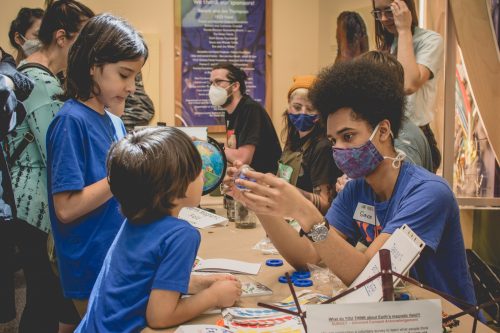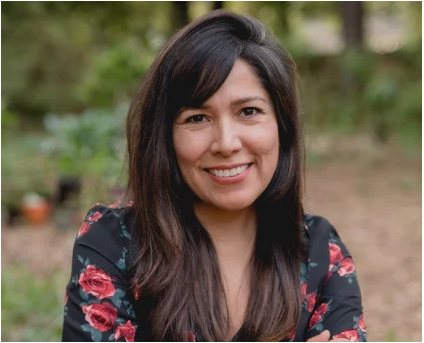 BSC 6038/GLY 6932
BSC 6038/GLY 6932
Thursday 3-4 period
2 or 3* credits
Ready to elevate your scientific journey to the next level? Join us to learn how scientists like you can amplify their impact on society.
In today’s world, there is an increasing emphasis on what a scientist does and how we impact society. For example, NSF requires “Broader Impact” plans in grant proposals. Likewise, many scientific institutions expect their scientists to conduct outreach, education, or community engagement. This seminar-format course will explore how scientists can increase our impact on society and will provide students the tools to prepare successful “Broader Impact” plans.
Intended Participants
Graduate students** from any STEM discipline, including anthropology, astronomy, botany, chemistry, educational technology, entomology, geology, physics, science education, wildlife, zoology, etc.
**Others with instructors’ permission. Limited to 24 (12 in-person, 12 virtual)
Instructor
Mariela Pajuelo
Assistant Scientist,
Florida Museum of Natural History
Readings and Assignments
Text: MacFadden, B.J. 2019. Broader Impacts of Science on Society. Cambridge https://doi.org/10.1017/9781108377577
Weekly Assignments: include readings from the text and primary literature, web research, small projects, and preparation for class discussion/presentations. Syllabus with a schedule will be posted in Canvas or can be requested from the instructors.
Topics included:
- Broadening participation in STEM
- Science Communication
- Museum Exhibits
- K-12 Outreach
- Evaluation Tools
Evaluation and Grade
2-credit option
The final course grade will be based on: (1) Attendance and active participation in class (50%); (2) class presentations and leading discussions (25%); and (3) semester project (25%).
*3-credit option
In addition to the above required for 2 credits, students have the option to register for a 3rd credit and do an additional semester-long project or term paper, TBD. In this case the 2-credit option would be worth 2/3rds of the final grade and the additional 3rd credit to be worth 1/3rd towards final grade. It may require another weekly mentoring class period TBD.
Examples of Broader Impact Projects developed in this class
- Workshop for International Students, developed by Claudia Garnica
- Feathered, Fearless, and Fabulous Friends: Get to know your backyard birds developed by Stephanie Wheeler
- Creating Earth’s Dipolar Magnetic Field in a Jar: a combination of science and art, developed by Scott Miller
- Integrating an interactive community science (iNaturalist) component into FLMNH’s upcoming ‘Incredible Insects’ exhibit, developed by Erin Grady
- Students as a subject matter: utilizing performance photography and narration to foster affective learning in a research environment, developed by Lisa Coe
- Get to know your robot teammate: a pop-up interactive exhibit for construction workers, developed by Zixian Zhu
Student testimonials
“I think learning about the importance of aspects of making sure your science reaches beyond purely academic uses was the big takeaway I had from the course.”
“The guest speakers were fantastic and I am really happy with the course structure. Learning from my classmates was the best part and I loved having the second half of the class be so collaborative and focused on the students. It was really neat to learn about topics of interest but also amazing ideas on how to apply those specialties and knowledge to broader impacts.”
“Pretty much every topic in the class gave me useful insight into how to best develop a science communication project. I especially learned a lot about evaluating success and which modes of outreach are the most effective.”
